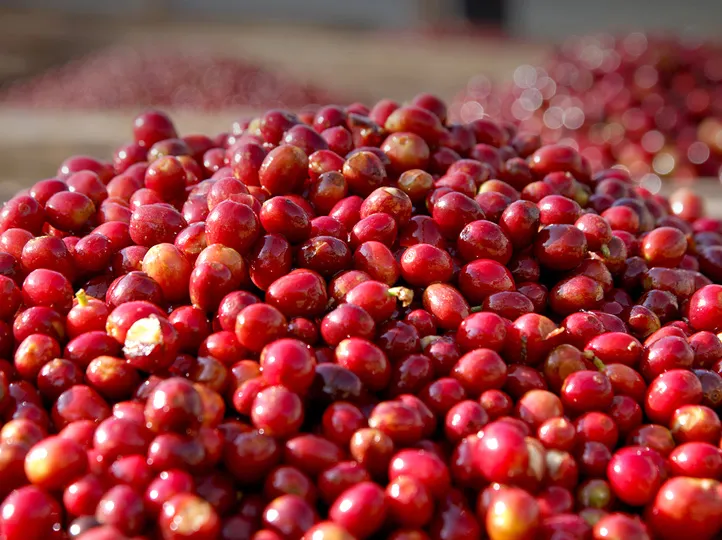
A seismic shift is under way in Ethiopia’s coffee export sector. The Ethiopian Coffee and Tea Authority has issued Directive 1106/2025, sharply increasing minimum capital thresholds for private exporters and trade associations, and demanding stronger quality controls across the supply chain. The aim is clear: professionalize the industry, stop misuse of credentials and make traceability and quality non negotiable.
What changed, in plain language
Private coffee exporters now need a minimum capital of Birr 15 million, up from Birr 1 million. Trade associations and larger entities such as joint stock and limited liability companies must meet a minimum capital of Birr 20 million, a big jump from the previous Birr 1.5 million requirement. Those numbers reshape who can operate at scale and who will need new partners or fresh investment to stay active in exports.
On the quality side the directive is equally strict. Except for farmer-exporters, every exporting company must run an ECTA certified coffee laboratory for basic testing. Each exporter must employ a qualified coffee taster with at least a diploma and a renewed proficiency certificate. To tighten oversight these tasters may work for only one coffee dispatcher at a time, strengthening traceability from cup back to farm.
Why the authority moved now
ECTA says earlier rules were not robust enough to prevent misuse of competence certificates and to guarantee market transparency. By raising the financial bar and tightening technical requirements, the authority is trying to limit quick, informal operators and make sure that anyone handling Ethiopia’s flagship export is accountable and verifiable. In practical terms this should reduce fraud, improve grading accuracy and protect Ethiopia’s global reputation for unique coffees.
The immediate reactions
Industry reaction is mixed. Some welcome the move as overdue and necessary to raise standards and attract serious investment. Others worry the higher thresholds will favor established players and reduce competition, making it harder for smaller exporters and new entrants to participate without merging or seeking outside capital. That tension will be the story to watch as the market adjusts.
Ethiopia is not just a coffee producing country. Coffee is a way of life and the backbone of rural livelihoods. The industry generated about US$2.7 billion in revenue in the latest fiscal year, with production reaching roughly 1.2 million tons and exports about 467,000 tons. That represents a strong rebound compared with five years ago when exports were under 200,000 tons, and it helps explain why regulators are now focused on preserving quality and market confidence as volumes grow. Agriculture initiatives such as the Green Legacy program have supported this expansion by promoting the mass planting of seedlings.
What this means for exporters and farmers
For exporters with capital and formal structures the directive is an opportunity to differentiate, to guarantee better traceability and to command higher prices for consistently graded lots. For smaller traders and farmer-exporters the picture is more complex. Farmer-exporters are exempt from some requirements, which preserves a role for grassroots participation. Still, those who rely on export partnerships or informal channels will need to rethink business models, pursue joint ventures or scale up to meet the new rules.
For farmers higher standards can be a net win if they lead to better farm-gate prices and longer term contracts tied to quality. But the transition must be managed so that benefits flow back to the smallholders who produce the beans. Research and extension services, plus investment in post-harvest handling, will determine whether quality gains reach the farm level.
Opportunities for investors and service providers
The new rules create openings across several segments:
- Lab services and certification providers can expand, because exporters now must operate ECTA certified labs.
- Training and testing for professional tasters will be in demand as exporters hire diploma-holding tasters with renewed proficiency certificates.
- Agricultural services that improve bean quality, post-harvest handling and disease-resistant planting materials will find new markets.
- Private equity, venture capital and larger agribusinesses that can satisfy the capital thresholds may accelerate consolidation and modernization of the export sector.
A path forward
To avoid squeezing out smaller players the policy mix that follows will matter. Policymakers and industry leaders should consider phased compliance windows, accessible financing for capable small exporters, and partnerships that link farmer cooperatives with certified dispatchers. Clear, transparent enforcement combined with support programs would maximize the directive’s potential to raise quality without reducing livelihoods.
Directive 1106/2025 is a turning point. It raises the bar for who can export Ethiopian coffee and how that coffee must be handled and assessed. If implemented with fairness and effective support mechanisms, it could sharpen Ethiopia’s competitive edge in premium coffee markets and reward the millions of farmers who rely on the crop. If implemented without safeguards it risks consolidating power in a smaller group of exporters. Either way, the coming months will show whether the new rules will be a catalyst for quality and trust or a challenge to inclusivity in one of the world’s most treasured coffee regions.
Stay updated with the latest farming tips and agriculture industry news from Africa by subscribing to our newsletter. Don’t miss out on valuable insights and updates. Follow us on Twitter, LinkedIn, and Facebook to join our farming community and stay connected with us.


















